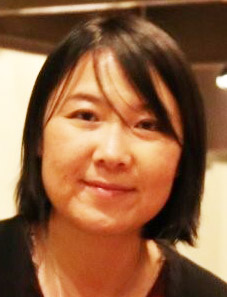The event requested is not currently available
Energy-Efficient High Speed Avalanche Photo Diode (APD) Optical Links
#High
#speed
#HPC
#AI
#ML
#optical
#interconnects
#Si(Ge)
#Avalanche
#diode
 As AI and machine learning continue to advance rapidly, the demand for GPU and data center connectivity is escalating. Silicon photonics is emerging as a transformative solution for optical interconnects, offering cost-effective, high-volume optical interconnect solution. Current electrical and optical interconnect struggle to meet the power demand and connectivity driven by the needs of AI and cloud computing. At the LSIP group within Hewlett Packard Labs, we are focused on delivering low-power optical links capable of reaching beyond 1.6Tb/s transmission with 200+ Gb/s per lane. In this presentation, I will discuss our efforts in developing high speed silicon photonics optical interconnects, including utilizing high speed Si(Ge) avalanche photodiodes to realize energy efficient optical links.
As AI and machine learning continue to advance rapidly, the demand for GPU and data center connectivity is escalating. Silicon photonics is emerging as a transformative solution for optical interconnects, offering cost-effective, high-volume optical interconnect solution. Current electrical and optical interconnect struggle to meet the power demand and connectivity driven by the needs of AI and cloud computing. At the LSIP group within Hewlett Packard Labs, we are focused on delivering low-power optical links capable of reaching beyond 1.6Tb/s transmission with 200+ Gb/s per lane. In this presentation, I will discuss our efforts in developing high speed silicon photonics optical interconnects, including utilizing high speed Si(Ge) avalanche photodiodes to realize energy efficient optical links.
Date and Time
Location
Hosts
Registration
-
 Add Event to Calendar
Add Event to Calendar
Loading virtual attendance info...
- Starts
21 September 2024 10:34 PM UTC
- Ends
12 December 2024 09:00 PM UTC
- No Admission Charge
Speakers
Zhihong Huang of Hewlett Packard Labs
Biography:
 Zhihong (Joan) Huang is a principal research scientist at Hewlett Packard Labs. At LSIP group within Hewlett Packard Labs (HPE Labs), she leads the research and development of high-sensitivity, low-energy silicon optical transceivers and integrated photonic networks for data centers and high-performance computing. She focuses on photonics device innovation, photonic link and CMOS transceiver co-design and photonic link optimization to enable 200+ Gb/s high-speed Si photonics optical links for AI cloud environments, data centers, and high-performance computing. Her passion is centered on implementing integrated Si photonics to sensing, photonic neural network, high-speed optical interconnects and chip-to-chip connectivity. Zhihong has obtained her B.S. degree from Peking University, and her M.S. and Ph.D. degrees in Electrical Engineering from the University of Texas at Austin. She has authored and coauthored over 170+ journal and conference papers, 40+ granted patents and with two dozen pending.
Zhihong (Joan) Huang is a principal research scientist at Hewlett Packard Labs. At LSIP group within Hewlett Packard Labs (HPE Labs), she leads the research and development of high-sensitivity, low-energy silicon optical transceivers and integrated photonic networks for data centers and high-performance computing. She focuses on photonics device innovation, photonic link and CMOS transceiver co-design and photonic link optimization to enable 200+ Gb/s high-speed Si photonics optical links for AI cloud environments, data centers, and high-performance computing. Her passion is centered on implementing integrated Si photonics to sensing, photonic neural network, high-speed optical interconnects and chip-to-chip connectivity. Zhihong has obtained her B.S. degree from Peking University, and her M.S. and Ph.D. degrees in Electrical Engineering from the University of Texas at Austin. She has authored and coauthored over 170+ journal and conference papers, 40+ granted patents and with two dozen pending.

 Add Event to Calendar
Add Event to Calendar


